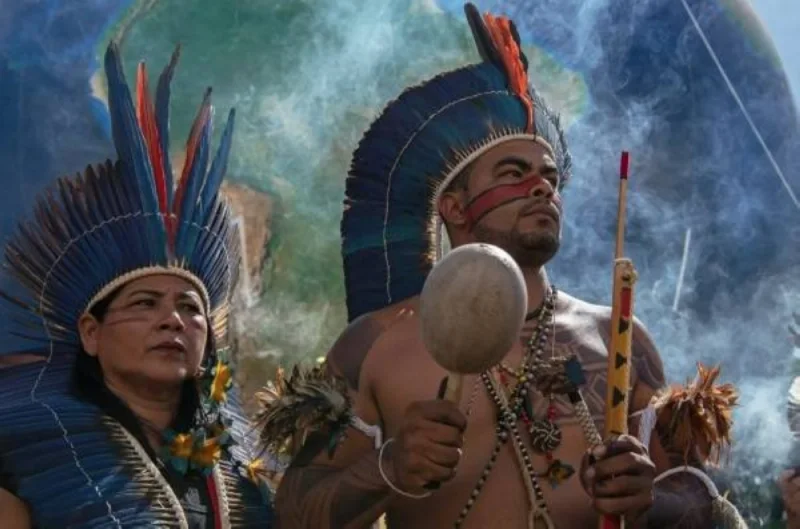
The leaders of 54 Indigenous communities in Brazil called on Friday for the government to take a concrete stance on the demarcation of their ancestral lands before a key Supreme Court ruling on the issue.
The Supreme Court's so-called "trial of the century" could remove the protected status of some Indigenous lands, opening them up to agribusiness and mining.
In an 11-point letter, the Indigenous leaders called on the minister of Indigenous peoples, Sonia Guajajara, to "fulfill her mission to demarcate Indigenous lands".
The law currently only recognizes ancestral territories that were occupied by Indigenous communities at the time Brazil's constitution was promulgated in 1988.
But Indigenous leaders say certain territories were no longer occupied at that point because communities had been expelled from them, particularly during the military dictatorship from the 1960s to the 1980s.
The upcoming Supreme Court trial, which was postponed in June, will either validate or invalidate the 1988 cut-off.
In Friday's letter, the Indigenous leaders argued that upholding the cut-off date would jeopardize their survival and lead to thousands of evictions.
President Luiz Inacio Lula da Silva's left-wing government has made the issue of ancestral land rights a priority, and signed in April decrees recognizing six new Indigenous territories, authorizing Indigenous peoples to occupy the land and have exclusive use of its resources.
No new reserves had been demarcated under former president Jair Bolsonaro's right-wing government.
Environmentalists say protecting Indigenous reservations is one of the best ways to stop the destruction of the Amazon, a critical resource in the race to curb climate change.


